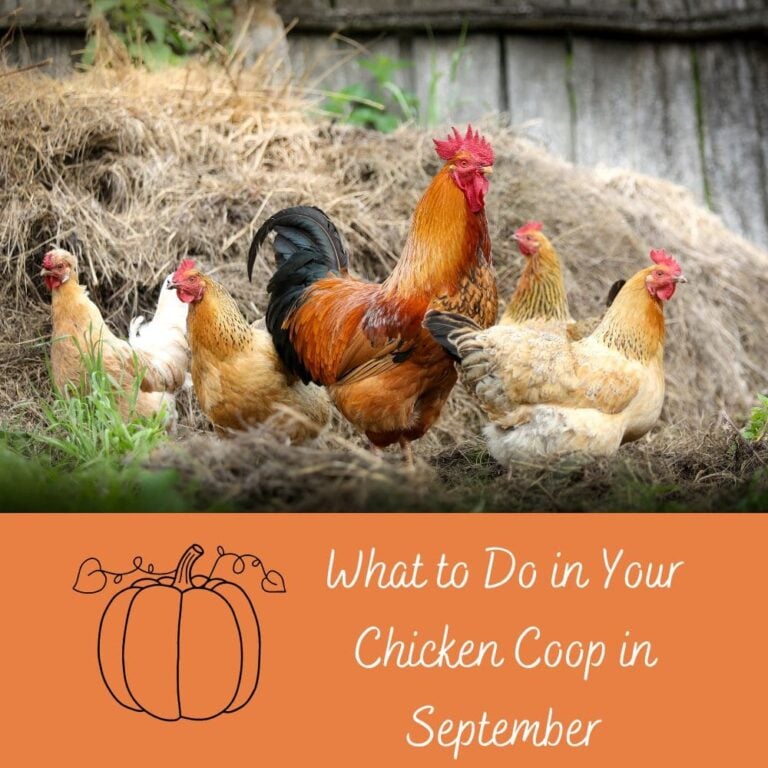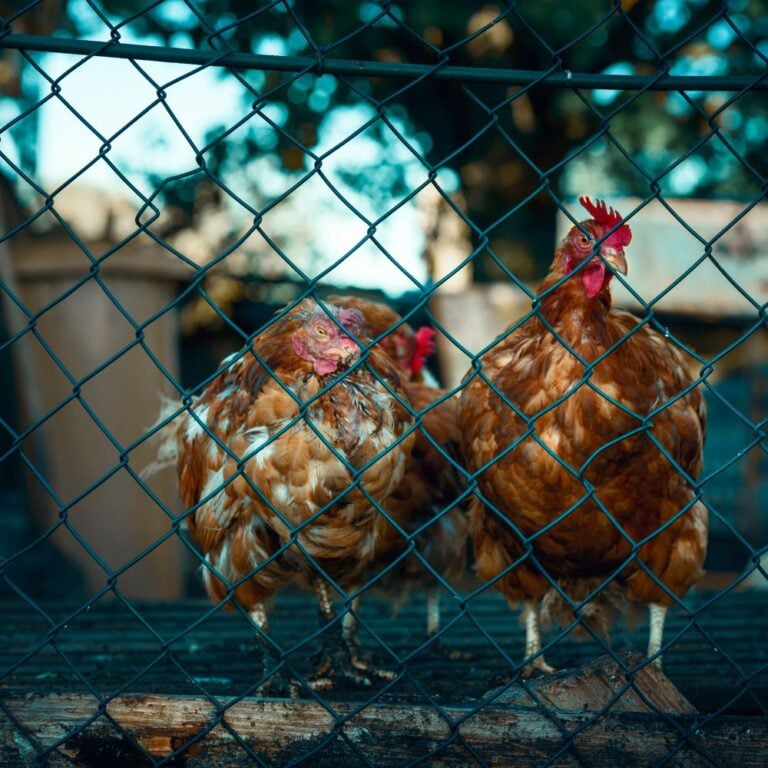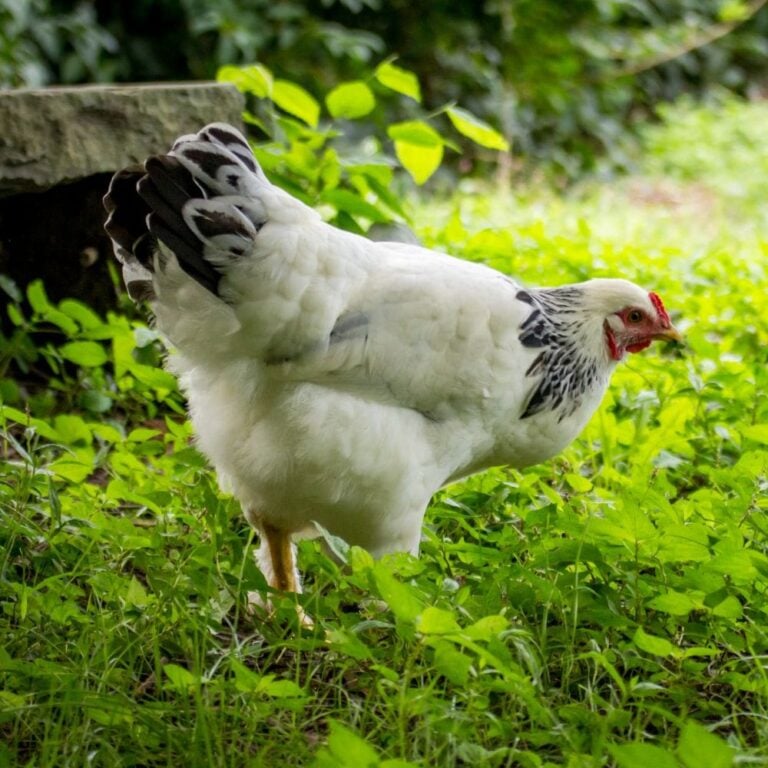You might be wondering “when do chicks start laying eggs?”
People tend to purchase their chicks in March. Around June, when they’re six to eight weeks old, owners start to wonder why they aren’t laying eggs yet. The short answer is: they’re not ready yet.
The longer explanation involves their sexually mature status. Chicks who are two months old aren’t ready to lay eggs. In fact, you have to wait until they’re six to seven months old to see the first eggs. Of course, this is dependent on a few factors.
Table of Contents (Quickly Jump To Information)
Age
Five to seven months old is the minimum age chickens tend to start laying eggs. But depending on the breed, your chicks may not lay any eggs until they’re at least a year old. In addition, their reproductive systems might not be healthy. Therefore, their yield may be less at this age. Or, it might take longer for them to lay eggs. There are even some who never produce an egg in their lifetime.
Season
The time of year is also a factor in egg production. For instance, if you buy chicks in January, they might start egg production in July for two reasons. One, they have reached the minimum age. Two, it’s warm, and there’s 12 to 14 hours of free light in the form of sunshine. This is when chickens tend to give out the most eggs due to a hormonal response.
On the other hand, if you purchase chicks in August – at least in the northern hemisphere – and they reach 6 months in February, there’s a good chance they won’t lay eggs. Or, due to the lack of natural warmth and light, they won’t produce many. Therefore, you’ll need to wait until at least May for the chickens to actively lay eggs.
Diet
Like humans, hens are unable to produce if they don’t have a proper diet. Lack of one thing or another can lead to their sluggishness and other health issues. You want to give them a 16% layer feed so they get enough nutrients to start egg production.
Additional sources of essential minerals and vitamins are found in fresh veggies, fruits, dried insects, and raw peanuts (meaning unsalted and unroasted).
Giving all of these to chickens ensures they have the broadest spectrum of nutrients required. But if you have chicks that have not gotten a decent diet, then you want to start them on a 18% chick starter. Without this, it might take them longer to start egg production because their bodies haven’t reached their healthiest state.
This is why we don’t recommend letting your chickens forage for their feed on a full-time basis. Yes, other bloggers out there recommend this free-range option, and you need to decide on the best choice for your chickens. However, if they go free-range, there might be chickens who don’t produce eggs as soon as you want them to.
Remember, what your chicks eat goes into the eggs. In an extreme example, some of my chickens went after dead mice that were killed by my cat a month before. Do you want eggs that feature a breakdown from these dead rodents and the worms that most likely grew in their remains?
In the end, that’s why we recommend sticking with the 18% chick starter and the 16% layer feeds. This ensures they’re getting a healthy diet filled with nutrients that we put in our own bodies.
Environment
A final consideration we’ll discuss is their environment. Situations like heat stress, extreme cold and an influx of predators can minimize egg production. Extreme weather is also an issue, especially in the summer.
In early spring, with its cool nights and mild days, chickens lay lots of eggs. However, by August, their production might go down because of the heat. Chickens have a body temperature of about 106 degrees. When it gets hot, they don’t have the same ability to cool themselves like humans do.
If your chicks turn 6 months old in August, they might not consistently produce eggs until October. Of course, that’s for areas that feature a significant cool down in the fall. For instance, in the Midwest, there tends to be an uptick in egg production from September to November. It goes down for the rest of the winter.
In addition to climate, you want to look at the living situation of your chickens. If they’re in a coop with a lack of space, or they’re crammed in with a number of roosters, it can decrease their egg production. The same thing if predators or small vermin like mice can saunter in and out.
Unexpected critters can stress both adult and younger chickens, thus reducing their egg production. This is why you want to ensure they live in a coop that is as predator and vermin-free as possible.
Many Factors In Egg Production
Getting fresh eggs is one of the reasons people decide to raise chicks, and they’re anxious to see production begin. However, there are factors that delay this. Age is one of them, diet is another, and environment is a third.
If you review the advice mentioned above to keep your chicks as healthy and safe as possible, you will see a surplus of eggs before you know it.
More reading:
How often do chickens lay eggs?
Maat van Uitert is a backyard chicken and sustainable living expert. She is also the author of Chickens: Naturally Raising A Sustainable Flock, which was a best seller in it’s Amazon category. Maat has been featured on NBC, CBS, AOL Finance, Community Chickens, the Huffington Post, Chickens magazine, Backyard Poultry, and Countryside Magazine. She lives on her farm in Southeast Missouri with her husband, two children, and about a million chickens and ducks. You can follow Maat on Facebook here and Instagram here.


![Fall In Love With Feeding Pumpkins To Your Chickens + Fall Coop Spray Recipe! [Podcast]](https://thefrugalchicken.com/wp-content/uploads/2018/08/chickens-and-pumpkins-min.jpg)




What kind of lighting do you use to supplement your chickens with? Any special type of bulb? Thanks for all your helpful information! I really appreciate and enjoy reading it!
A day light simulating bulb is best! Just make sure it doesn’t get hot.